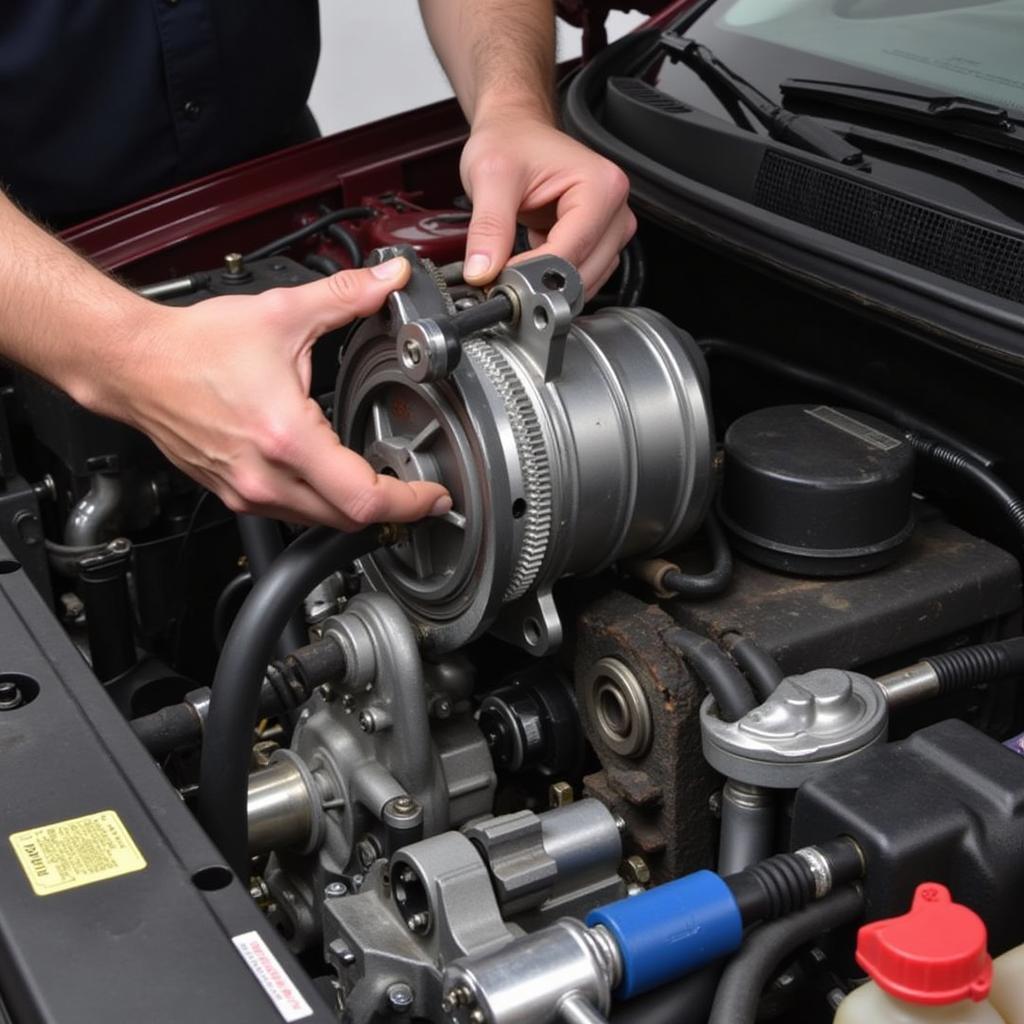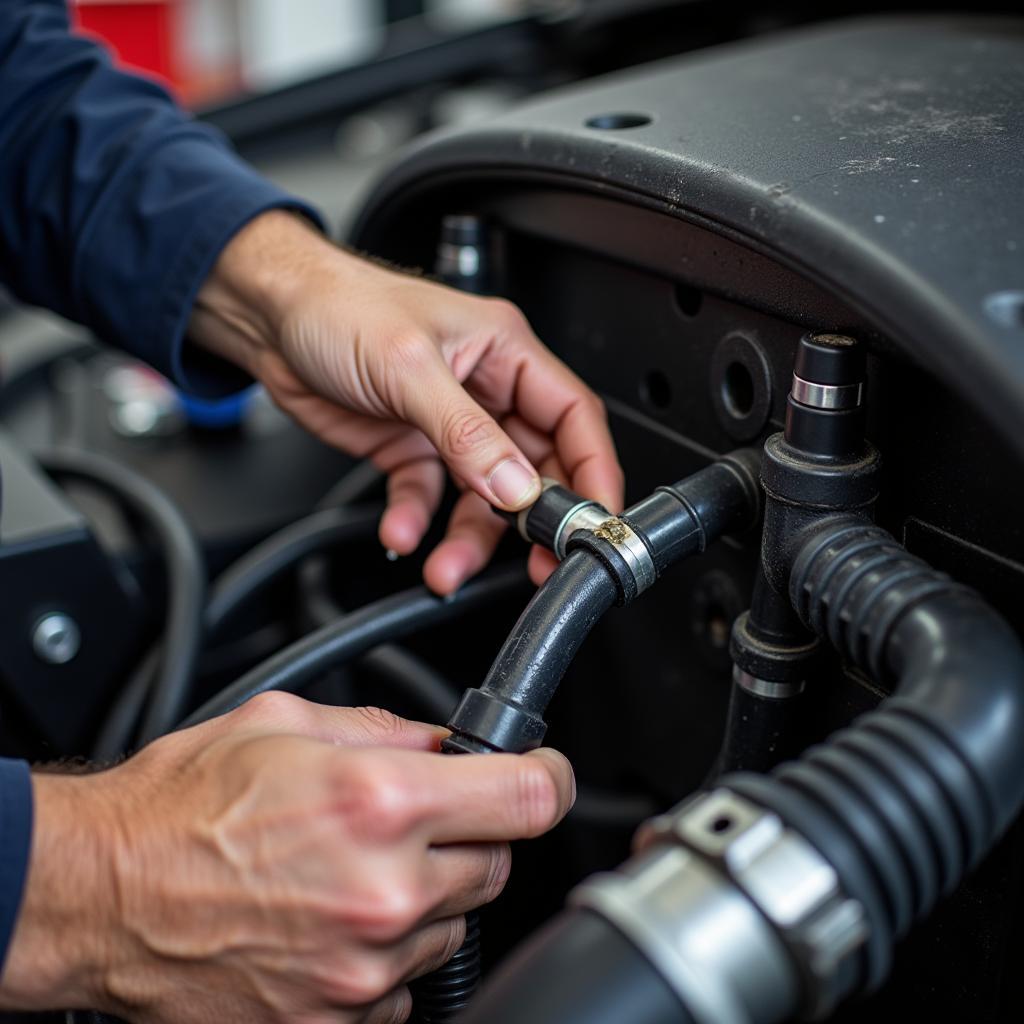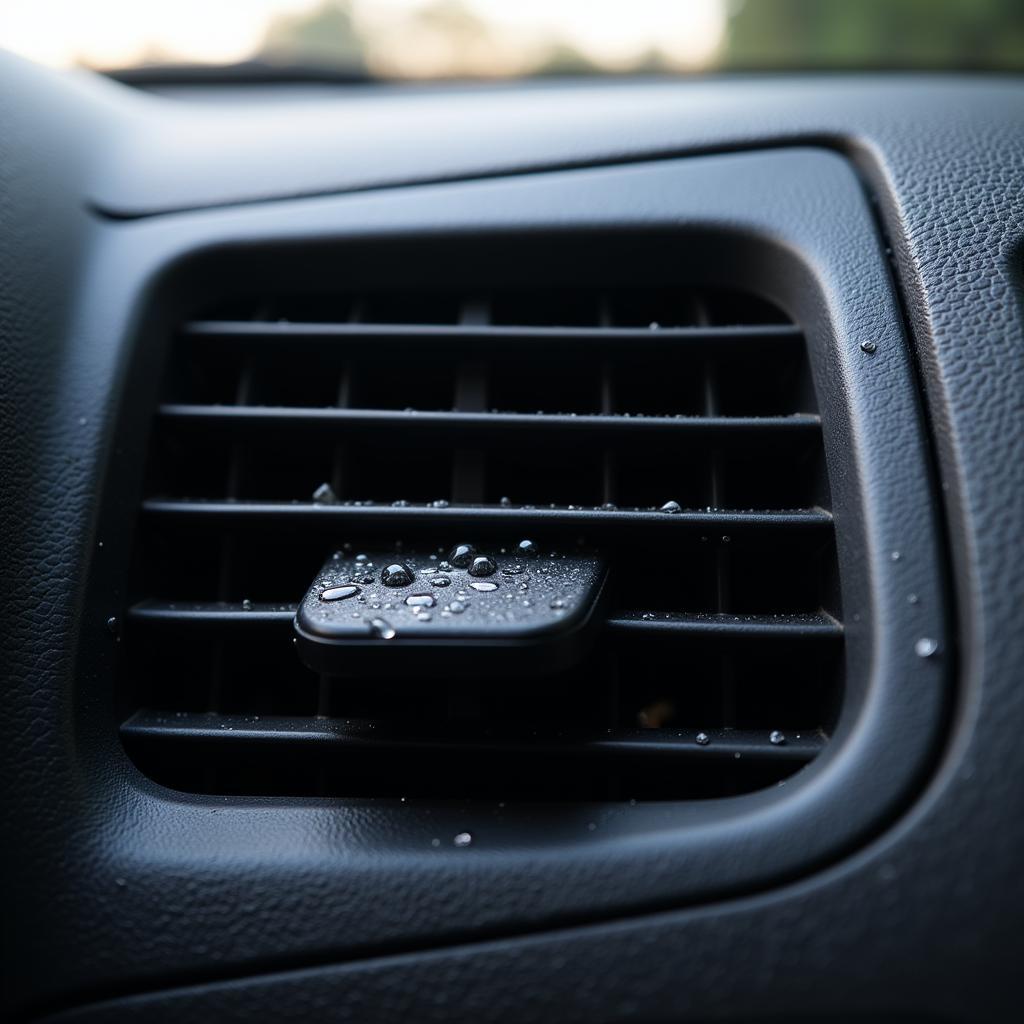Dealing with a faulty AC system in your car can be a real pain, especially during scorching summers. An Ac Leak In Car Fix isn’t always a simple DIY task, but understanding the problem and knowing your options can save you time and money. Let’s dive into the common causes, diagnostic procedures, and repair solutions for an AC leak in your car. Find out how to fix leaking ac of car.
Identifying the Culprits: Common Causes of AC Leaks
Several components within your car’s AC system can spring a leak. These include:
- O-rings and seals: These rubber components are prone to drying out and cracking over time, leading to refrigerant leaks.
- Hoses and connections: Vibrations and wear can cause leaks at hose connections or within the hoses themselves.
- Condenser: Located at the front of the vehicle, the condenser is susceptible to damage from road debris, leading to leaks.
- Evaporator: The evaporator, situated inside the dashboard, can develop leaks due to corrosion or physical damage.
- Compressor: Leaks in the compressor, the heart of the AC system, are less common but can be more complex to repair. Learn more about how to fix a car ac compressor leak.
Diagnosing the Leak: Finding the Source of the Problem
Pinpointing the exact location of an AC leak is crucial for effective repair. Several methods can be used:
- Visual inspection: A careful examination of the AC components can reveal obvious signs of leaks, such as oil residue or physical damage.
- Electronic leak detector: These devices can sniff out even the smallest refrigerant leaks, helping to identify the source quickly.
- Dye injection: Adding a fluorescent dye to the refrigerant system allows leaks to be detected using a UV light.
- Pressure test: Pressurizing the system with nitrogen can help identify leaks by observing pressure drops.
AC Leak in Car Fix: Repair Options
Once the leak is identified, several repair options are available, depending on the severity and location of the leak:
- Sealant: For minor leaks, a sealant can be added to the refrigerant system to plug the leak. This is often a temporary solution.
- Component replacement: Damaged components, such as O-rings, hoses, or the condenser, may need to be replaced.
- Compressor repair or replacement: If the compressor is leaking, it may be possible to repair it. However, in some cases, replacement may be necessary. You can find a service near you by searching for “car ac leak fix near me”. For information on pricing, consider researching the “cost to fix ac leak in car pepboys.”
 Replacing a Car AC Compressor
Replacing a Car AC Compressor
DIY vs. Professional Repair
While some minor AC leak repairs can be tackled by DIY enthusiasts, more complex issues are best left to qualified technicians. They have the specialized tools and knowledge to diagnose and repair the system correctly. Check out more information on how to fix freon leak in car ac.
Preventing Future Leaks
Regular maintenance can help prevent AC leaks:
- Regular inspections: Have your AC system inspected annually by a qualified technician.
- Keep the system clean: Debris and dirt can damage AC components.
- Use quality refrigerant: Using the correct type and amount of refrigerant is crucial for proper system operation.
 Car AC System Inspection
Car AC System Inspection
Conclusion: Keeping Your Cool
An ac leak in car fix is essential for maintaining a comfortable driving experience, especially in warmer climates. By understanding the causes, diagnostic methods, and repair options, you can make informed decisions about how to address AC issues in your vehicle. For expert assistance, connect with AutoTipPro at +1 (641) 206-8880 or visit our office at 500 N St Mary’s St, San Antonio, TX 78205, United States.
 Car AC Vent Blowing Cold Air
Car AC Vent Blowing Cold Air
Expert Insight:
- Johnathan Miller, Automotive Cooling Specialist: “Regularly checking your AC system for leaks can prevent costly repairs down the line.”
- Maria Sanchez, Certified Automotive Technician: “Using the correct refrigerant is essential for optimal AC performance and longevity.”
- David Lee, AC System Engineer: “Don’t underestimate the importance of professional diagnosis for complex AC issues.”
Need more help? Contact us today!






Leave a Reply